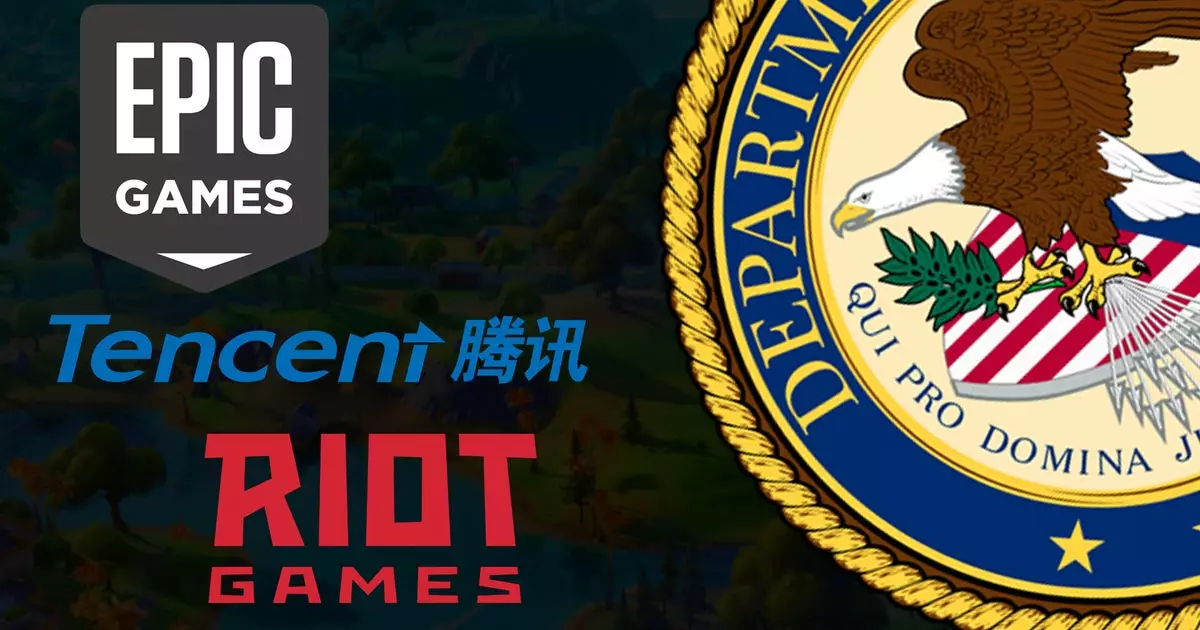In a significant move underscoring the growing scrutiny of corporate governance in the tech industry, two members of the board of directors at Epic Games have resigned following an investigation by the U.S. Department of Justice (DoJ). This decision stems from concerns related to antitrust laws, specifically regarding the influence that Tencent, which owns a minority stake in the Unreal Engine company and has full ownership of Riot Games, could exert over Epic Games, a direct competitor in the gaming market. The epicenter of this controversy uncovers potential conflicts of interest that could skew competitive fairness in an already turbulent industry.
The resignations have sent ripples through the corporate landscape, drawing attention to regulatory compliance and the structure of executive affiliations in large corporations, particularly those with competing interests. The DoJ’s investigation indicates a concern that having directors from Tencent, with its vested interests not just in Epic but also in other gaming enterprises, creates a scenario that could lead to monopolistic practices. The legal framework governing this situation is primarily anchored in the Clayton Act, which forbids individuals from simultaneously serving on boards of rival companies, illuminating the delicate balance regulators strive to maintain within the industry.
The resignations of Ben Feder and David Wallerstein shed light on the intricate relationships woven throughout the tech sector, particularly among companies with intertwining interests. Feder, who held the position of President of International Partnerships at Tencent, boasts a robust background, having previously served as CEO for Take-Two Interactive, a significant player in the gaming space. Wallerstein’s role as Senior Executive Vice President at Tencent until earlier this year further emphasizes potential conflicts of interest that could arise when executives hold influential positions across competing companies.
The current climate of corporate governance necessitates that companies proactively address any appearance of favoritism or bias as they navigate their strategic visions. The resignation of these directors not only aligns with regulatory expectations but serves as a case study in how larger entities must remain vigilant about their corporate structure and affiliations. Epic Games has formally communicated the necessity of these changes, indicating a willingness to adapt and comply with regulatory standards to maintain its competitive integrity.
Antitrust laws are designed to foster competition and protect consumers by preventing monopolistic practices that could stifle innovation. The gaming industry, prominently highlighted in recent years with high-profile acquisitions and market shifts, has seen companies like Valve face antitrust lawsuits that challenge their dominant positions. Similarly, Microsoft’s acquisition of Activision Blizzard attracted attention from both U.S and European regulators. These cases illustrate a growing trend towards legislative scrutiny of corporate activities and consolidation within the tech sector.
The resignations at Epic Games serve as a reminder that regulatory watchfulness is intensifying, urging other corporations to assess their board compositions critically. The implications of such evaluations extend beyond mere compliance; they can influence investor sentiment, public perception, and the overall viability of a company’s strategies in the marketplace. As the industry evolves, so too must the governance structures that support it, ensuring they reflect transparency and ethical stewardship rather than entrenchments that could lead to regulatory sanctions.
As Epic Games navigates through this turbulent period, the departure of its directors unveils a larger narrative about the need for fortifying corporate governance in technology and gaming. The shifting regulatory landscape calls for ongoing dialogue regarding the ethical considerations that underpin boardroom decisions, particularly within multifaceted firms navigating increasingly competitive environments.
Ultimately, the actions prompted by the DoJ investigation could catalyze a more proactive and transparent approach to corporate governance across the tech industry. With rising scrutiny and the potential for further investigations, companies must prioritize establishing clear boundaries in their boardroom practices to foster a healthy competitive atmosphere that promotes innovation without compromising ethical standards. As the narrative continues to unfold, it is apparent that companies cannot afford to overlook the implications of governance structures in today’s fast-paced, interconnected tech ecosystem.


Leave a Reply